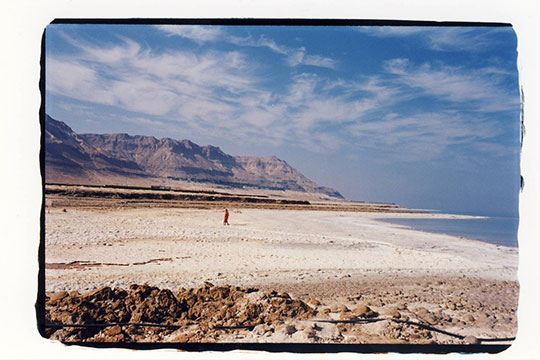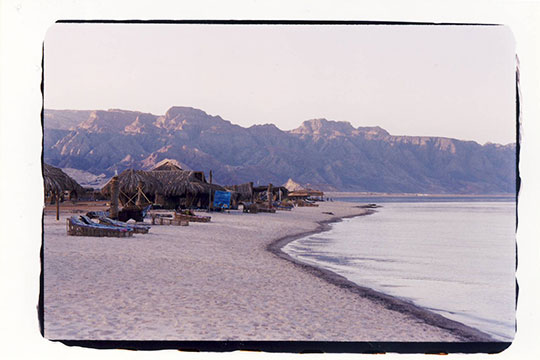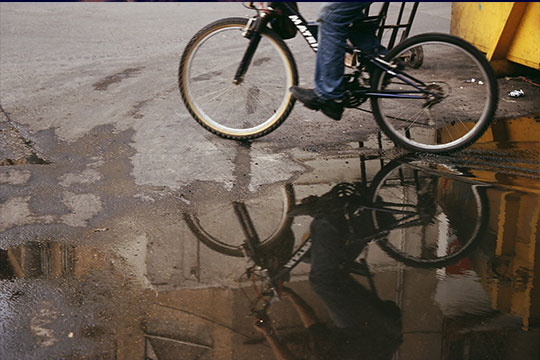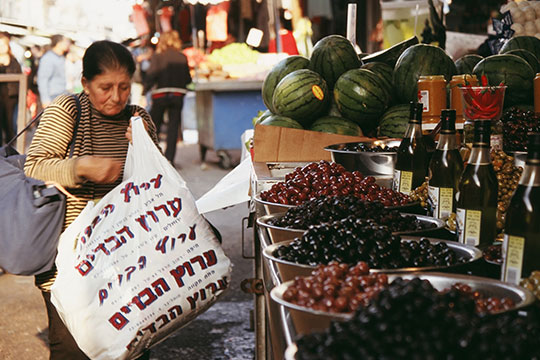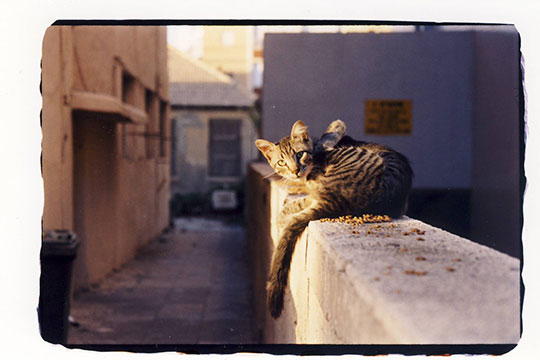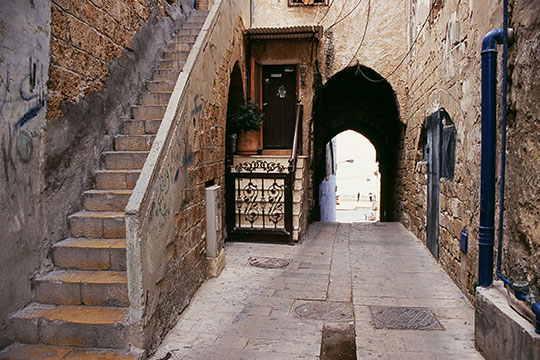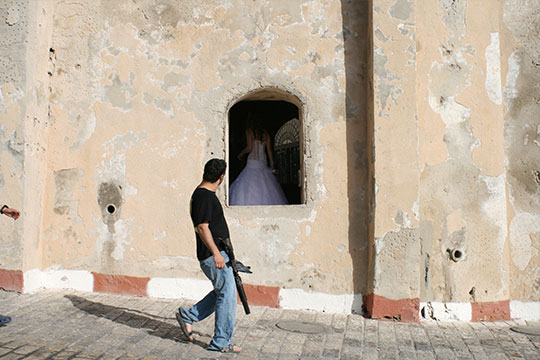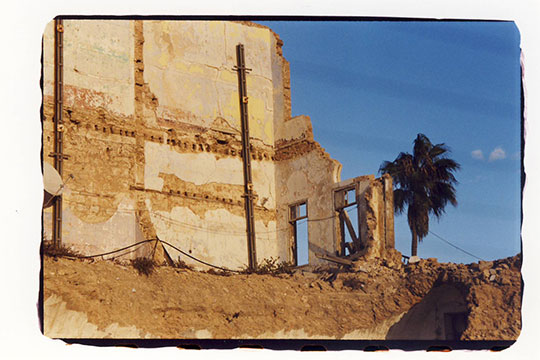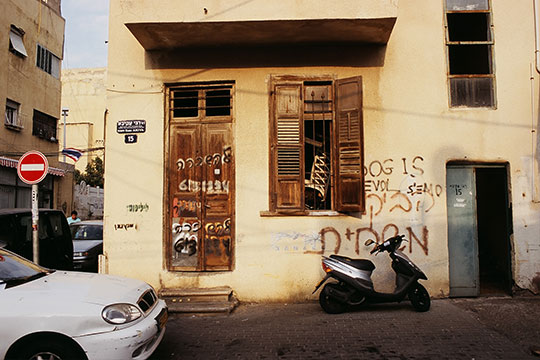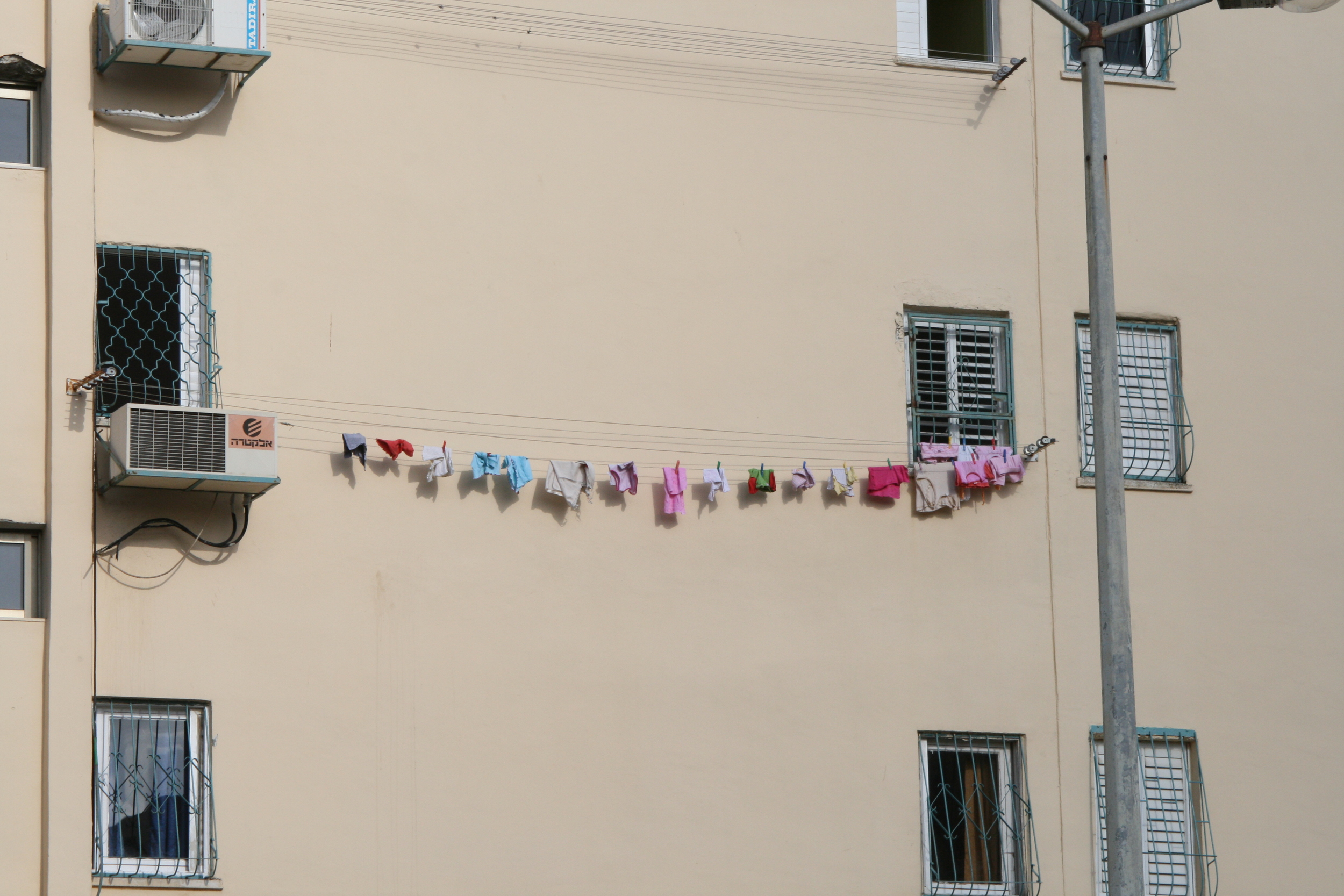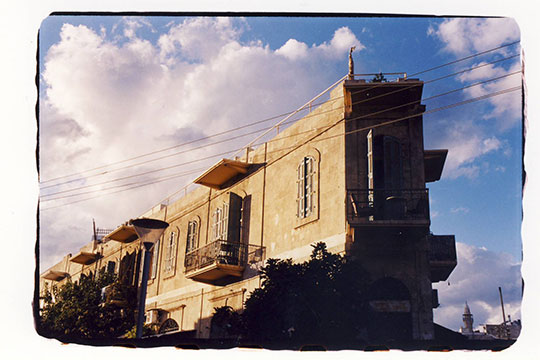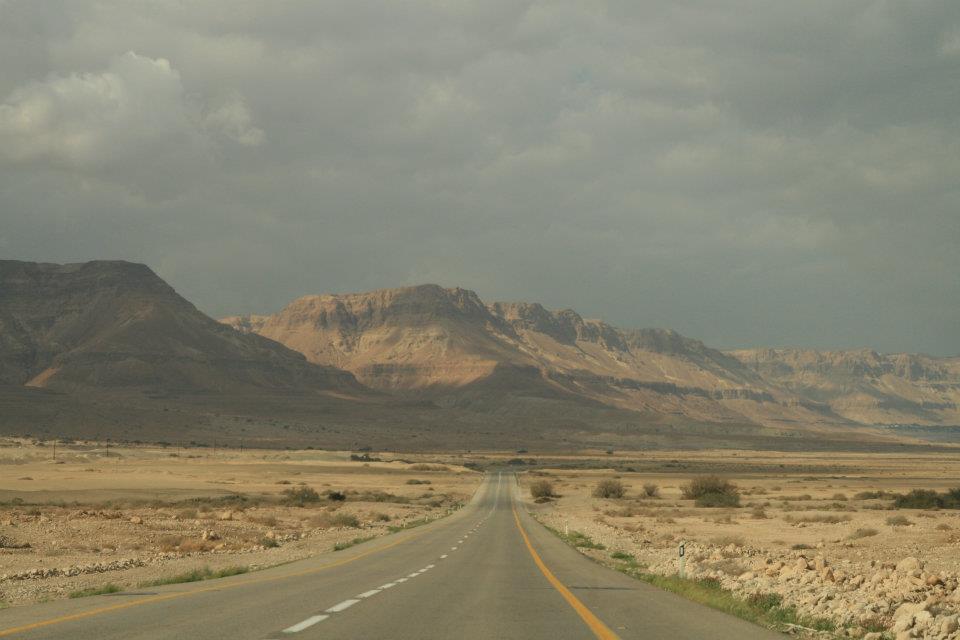IN CONVERSATION: Ayelet Tsabari
Sex and the Sea
Interview by Sarah Armenia
Author and photographer Ayelet Tsabari discusses writing badass female characters, serving as an Israeli soldier and pissing people off.
+ + + an exclusive portfolio of images from the author's recent trip to Israel
HLR: The bodies of water around Israel are featured in some of the stories in The Best Place on Earth. At the end of “Casualties” and at the end of “Below Sea Level,” both David and Yael use the sea and the water as an escape and as a way of healing. Can you talk about your relationship to the sea?
AT: The sea is such a big part of life in Israel, of Israeli culture. You can actually taste it in the air. In the Jewish religion, too, water has an important role. Observant Jews perform ritual washing and immersion of the body in water, and in Rosh Hashanah they perform tashlikh, where they cast their sins and regrets into the sea. I suppose that’s where the idea of water as a form of healing and cleansing comes from.
The sea is the setting for many of my formative memories: I spent many Saturdays there with my family, fell in love, had my first kiss, broke up with my first boyfriend. Later on I worked as a waitress on a Tel Aviv beach and got to work barefoot, watch hundreds of sunsets and sunrises, swim late at night. When I moved to Vancouver, I found myself living by water again. In Toronto where I now live, the lake doesn’t feel the same. It doesn’t offer the same promise, the same fantasy as the sea. It doesn’t satisfy my longings.
HLR: “Invisible” is about Rosalynn, a Filipino caretaker who is working for an Israeli family. At the end of the story, the ring that saved a young Yemeni bride may now save Rosalynn. Tell me about this connection. Also, did you have any trepidation about characterizing Rosalynn?
AT: My grandmother had several Filipino caretakers over the years, and one of them in particular inspired me. Like in the story, my grandmother and her caretaker were very close. It was clear they truly loved each other. I didn’t know it at the time, but I found out later my grandmother gave her caregiver a ring, just like in the story.
Jewelry is an important part of Yemeni Jewish heritage. In Yemen, jewelry making was strictly a Jewish profession; the majority of the Jewish men were silversmiths and they were known for their fine craftsmanship. In fact, after the Jews went to Israel, Yemeni culture suffered a huge loss because they took their craft with them. My grandfather was a silversmith and my grandmother did have a few rings and jewelry left, though she had to leave most of them behind when they came to Israel.
I always worry about appropriation, and this story was no exception, but this story and Rosalynn’s character consumed me. I’ve never believed in “write what you know.” I believe in “write what you must.” So I tried, knowing that I very well might fail. When writing fiction, you need to find that kernel of truth within you and superimpose it onto your character. With Rosalynn, I built on my experience of feeling like an outsider in a new country, being torn between homes. I also know what it feels like to be scared of the police: I worked and lived illegally for a while in my twenties. I accessed my own personal experiences and used them to write Rosalynn’s, allowing imagination and research to fill in gaps.
HLR: Describe your female characters, their sexual aggressiveness.
AT: I like to think my women are badasses. The first person to point that out to me was one of my teachers at Guelph who said he appreciated that my female characters were sexually aggressive, that they wanted sex and went for it. It wasn’t something that I did consciously. I just wrote the kind of female characters I like to read. A part of it stems from my interest in gender dynamics in Israel, in particular the mandatory nature of the army service and how it shapes young men and women. I feel that being forced at such a young age to go into the army—still a male dominated environment—contributes to young Israeli women possessing what’s considered stereotypically male characteristics. It probably also has something to do with growing up and living in a warzone, a place where survival is an issue and the need to defend oneself is so instilled in our minds that people—regardless of gender—feel they need to develop a certain toughness, be on the offensive, even in everyday life.
HLR: Did your time in the Israeli army influence your fiction?
AT: The army did inspire a lot of my writing, now and then. On my commutes to and from the base I wrote fiction because I was so miserable and depressed and it was my outlet, my happy place. I wrote a linked collection of short stories about unhappy female soldiers.
I was a terrible soldier. That’s the thing with mandatory service—it’s not for everyone, yet everyone has to go. I was a rebellious teenager, I didn’t like authority, and so naturally I struggled in the army. In “Casualties,” Yael is a much exaggerated, much cooler version of me as a soldier. She commits illegal acts, while I was just a troublemaker, and unlike her I was not that sexually aggressive. But I did have nine trials during my service, mostly for disciplinary offenses, and I nearly went to jail. I had been put on probation and on my very last trial I finally managed to convince the judge I was innocent or else I would have been sent to jail. I resented being posted as a secretary and having to type letters and make coffee and answer phones. I was arrogant and angry and I thought it was a waste of my skills. That’s why I never learned to type— I still type with two fingers because as a soldier I refused to get better at it.
HLR: Did you worry about representing the army?
AT: I worried a lot. For a long time I didn’t write about Israel at all. It’s such a volatile place and people have such strong opinions and everything you write about Israel is perceived as political. It is a double edged sword—some people may find your writing more alluring because of it while others may not want to go anywhere near it. At some point I had to stop worrying. I had to resign myself to the fact that I was going to piss people off, and that people are going to read the book and interpret it any way they like, and there is nothing I can do about it.
HLR: Can you recommend some Mizrahi Jewish authors?
AT: Mizrahi literature has been overlooked in Israel—it’s getting better now, but when I was growing up I never read characters or authors that represented me. It made me feel invisible. There are more Mizrahi authors published nowadays, but Mizrahi literature is still underrepresented in the education system and in the Israeli canon. Unfortunately, Mizrahi authors have been translated a lot less than Ashkenazi authors.
Sami Michael is one of my favourite authors, an Iraqi Jew who wrote his first novel in Arabic. He has been widely translated. Eli Amir is another Iraqi-born novelist whose work I admire. Dorit Rabinyan is a young author of Iranian background who writes beautifully about Iran and Israel. Ronit Matalon is a wonderful writer of Egyptian Jewish descent. I recently discovered a Yemeni woman writer I had never heard of and I doubt anybody in Israel had, either. Her name is Simha Zaramati Asta and she grew up in the Yemeni Grove in Tel Aviv, where most of her stories are set.
HLR: And what’s next?
AT: I am working on a memoir in stories that deals with similar themes to the ones explored in The Best Place on Earth, growing up amidst conflict and how it shapes a person, the searching for home and identity. Parts of the memoir have been published in literary magazines. I’m also in the early stages of a novel that takes place in the 50s and 60s in a Yemeni community in Israel.
Ayelet Tsabari is the author of the short story collection The Best Place on Earth (HarperCollins), which was nominated for the Frank O’Connor International Short Story Award. Her nonfiction has won a National Magazine Award and a Western Magazine Award and she is a two-time winner of Event’s Creative Non-Fiction Contest. A graduate of the Writer’s Studio at Simon Fraser University and the MFA program at Guelph University, Ayelet has taught creative writing through the University of Toronto and the University of Guelph. She was recently named as one of ten writers to watch by CBC.
author website: www.ayelettsabari.com
photographs: ayelettsabari.wix.com/photography

